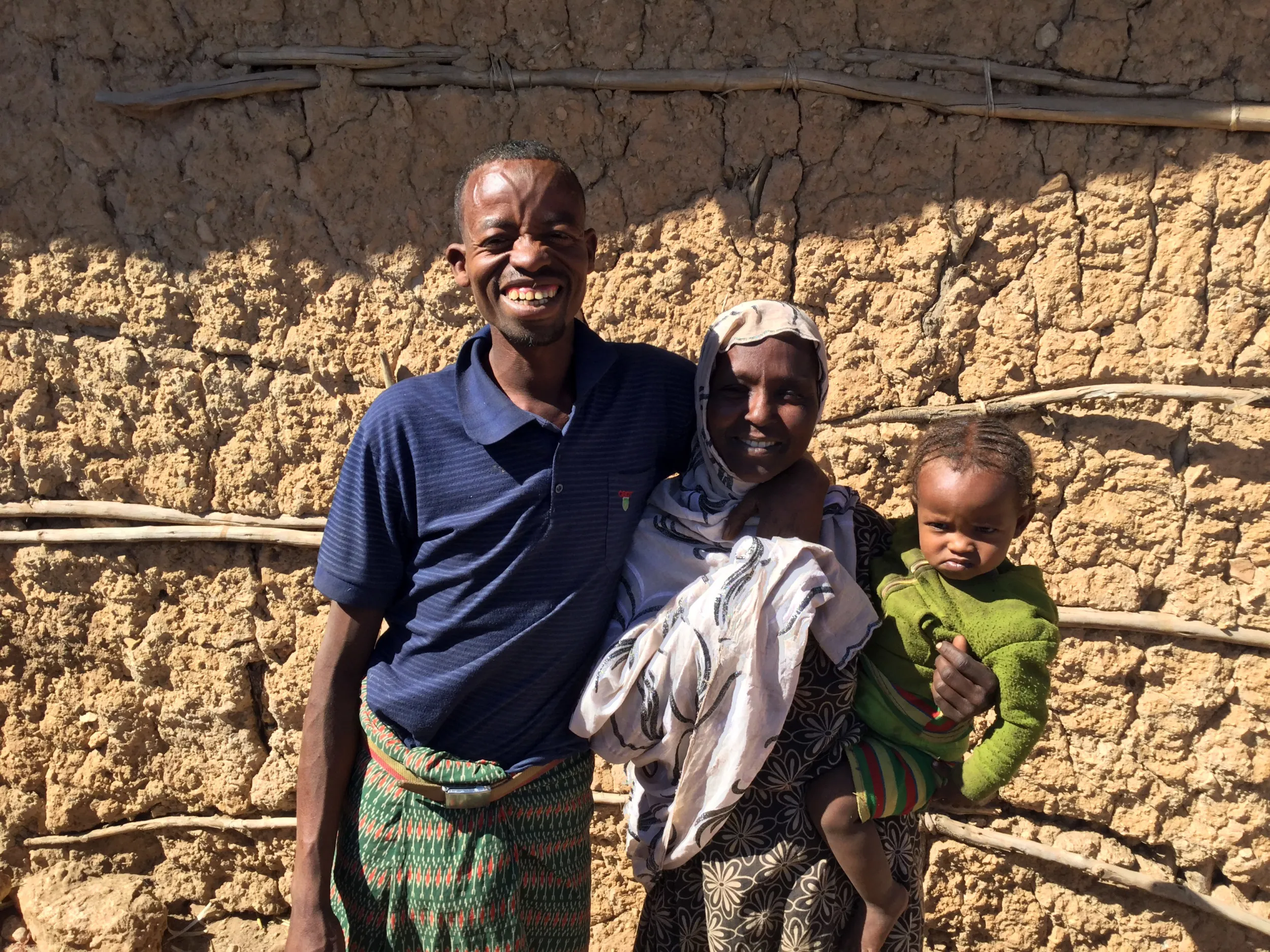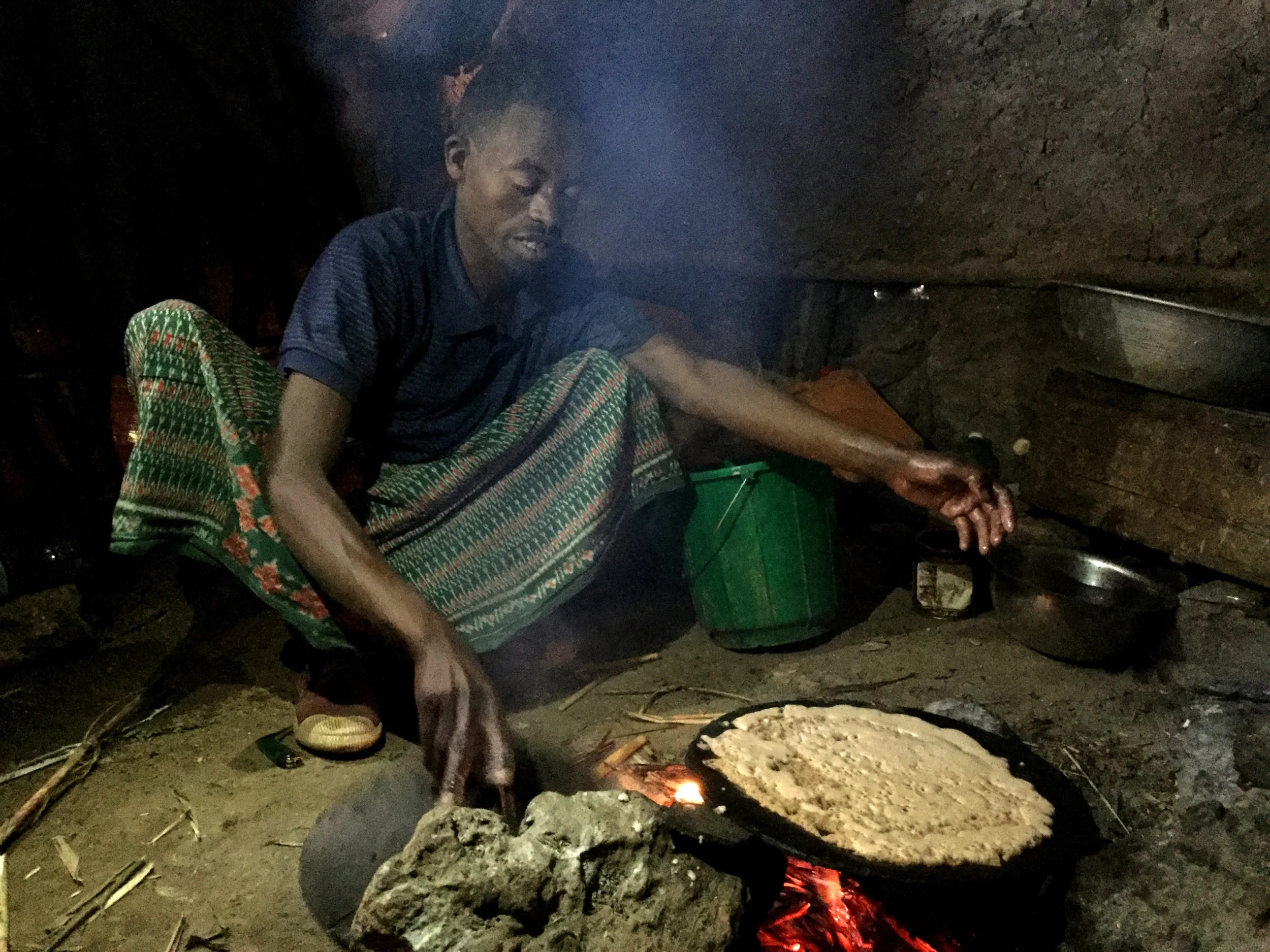Jamal Bekri Ibrahim is crouched on the floor of his one-room home, expertly pouring batter onto an iron skillet. Flames rise above the rim of the skillet, which rests on large rocks over pieces of charcoal. Jamal is making injera, a pancake-like bread and Ethiopian staple.
Minutes later, when the batter is cooked, Jamal removes it from the fire and displays it on a serving plate. While this is an everyday activity for him, a man making injera is an unusual sight in Ethiopia, where it is traditionally considered a woman’s responsibility.
Jamal explains that because his wife carries their one-year-old baby on her back, cooking over a fire can be dangerous.
Jamal, 38, and his wife Rumiya, 30, have shared household responsibilities throughout their marriage.
“It comes out of love for her,” he says.
In Ije Kacu, a village of 3,000 people located in Ethiopia’s East Hararghe Zone, the family has received criticism for Jamal’s participation in domestic work. Ije Kacu is a remote community with one main dirt road, located more than an hour’s drive from the nearest paved road. Simple homes made of stone with tin roofing stand alongside smaller mud huts with straw roofs.



